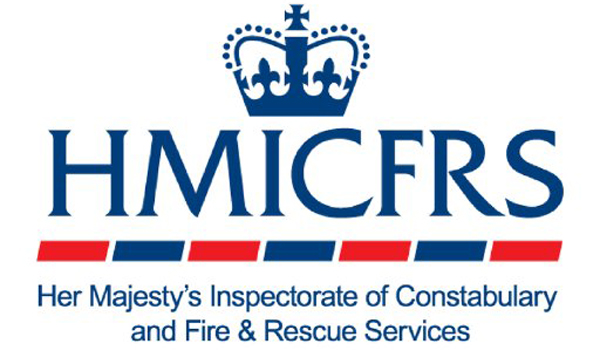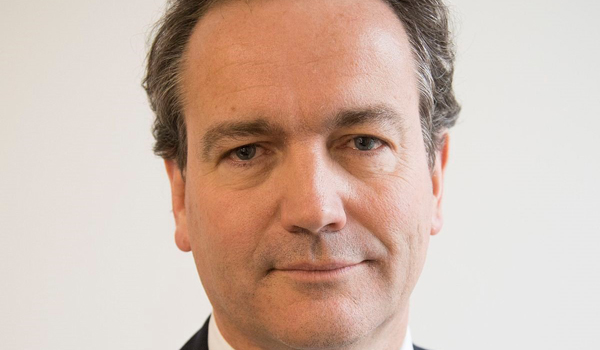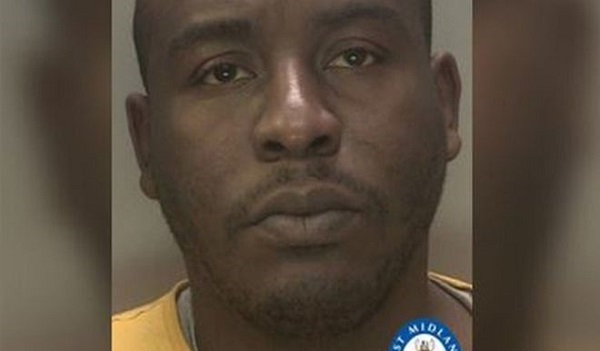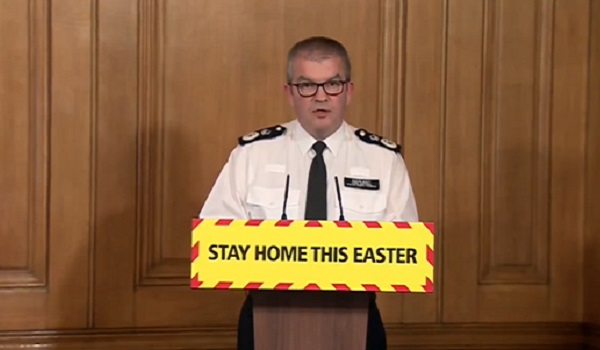Forces are not doing enough to prevent officers abusing their position for a sexual purpose
Forces need to do more to ensure they are able to detect and root-out ‘abuse of position for a sexual purpose’ by officers and staff, according to Her Majesty’s Inspectorate of Constabulary and Fire and Rescue Services (HMICFRS).
Some forces are “lagging far behind” in vetting their workforces, having the capacity to identify corruption and protecting their information systems, according to the latest inspection on the subject.
HMICFRS estimated that more than ten per cent of the police workforce did not have up to date vetting, despite agreeing national standards 13 years ago, but this may be an under-estimate as some forces can not provide clear information on who is vetted, who is not and what roles they occupy.
HMICFRS inspected how forces were tackling abuse of position for a sexual purpose in 2015, 2016 and 2017 and found that most forces have been slow to take the steps necessary to root out this type of corruption.
In its latest report, Shining a light on betrayal:abuse of position for a sexual purpose, published on Friday (September 27), it said forces have not invested the necessary resources and are not proactive enough in looking for corruption.
In the last three years to March 31, 2019, the Independent Office for Police Conduct (IOPC) has received 415 completed referrals for the category that relates to abuse of position for a sexual purpose.
From April 2016 to March 2017, forces made 100 referrals. This increased to 172 in the following 12 months and 143 referrals up to 31 March 2019.
In the last three tri-annual national threat assessments by the National Crime Agency, abuse of position for a sexual purpose was highlighted as one of the major threats facing UK law enforcement.
HMICFRS is particularly concerned that, as 40,000 officers are expected join the service in the next three years, vetting units are fit for purpose, “or they won’t be able to cope with the demand and vetting standards may fall”.
It found that two-thirds of forces had insufficient capacity in their counter-corruption units. This resulted in the failure to record abuse correctly. Examples were found of forces either not using the national corruption categories or using them wrongly, significantly hindering their ability to uncover the true extent of abuse of position.
And inspectors were “deeply concerned” to find that two-thirdsof forcesdo nothavefull monitoringon theirinformation and communications technology (ICT) systems, several forces still do not have monitoring software in place, despite recommendations made in previous reports saying all forces should have and use it.
And those forces that do have the software must resolve their confusion over how they can use the data it produces.
HM Inspector of Constabulary Zoe Billingham said: “It is important to recognise that this sort of abuse of power is thankfully incredibly rare, and the vast majority of officers and staff are dedicated public servants who would never contemplate this inexcusable behaviour.
“Nonetheless, even one instance of abuse of position for a sexual purpose is one too many. It is an appalling betrayal of often vulnerable people, and can be devastating to those who fall prey to it. Although the numbers of people involved are small, forces must do all they can to prevent, detect and deal with this serious form of corruption.
“We have been urging the police to acton this issue for some years now. Many forces have listened and already making changes. But I’ve been deeply disappointed to find that others have, after all this time, still not put some basic measures in place. Forces should reflect on the findings of this report and take action: to maintain the legitimacy of the police and, most importantly, to protect the public from predators who have no place in policing.”
Abuse of position for a sexual purpose is defined as any behaviour by a police officer or police staff member, whether on or off duty, that takes advantage of their position as a member of the police service to misuse their position, authority or powers in order to pursue a sexual or improper emotional relationship with any member of the public.
The Police Federation of England and Wales (PFEW) cautioned that the actions of a tiny few should not sully the reputation of the vast majority of officers who would never act in such a deplorable way.
Responding to the report, Phill Matthews, PFEW conduct and performance lead, said: “We welcome the report as it is important forces take the right steps to prevent and tackle this issue, however, it must be reiterated that officers do not stand for this type of abhorrent behaviour and are often the ones who themselves root out the tiny minority who abuse their position.”
The IOPC figures also do not include outcomes, Mr Matthews explained, therefore wrongdoing was not necessarily found following these investigations, which subject officers to malicious and vexatious allegations.
He suggested the small a rise in referrals to the police watchdog for abuse of position for a sexual purpose is relative to an increase in referrals across the board for other conduct matters and generally the reporting of sexual offences has rocketed in recent years.
“More victims are having the courage to speak out to the police, so it is frustrating when these incidents occur as it undermines the hard work of a majority of officers who always do the best they can to help victims and guide them through the criminal justice process which can be hugely daunting especially for victims of sexual abuse,” Mr Matthews added.
The Association of Police and Crime Commissioners lead for transparency and integrity, Julia Mulligan, said: “Public confidence in policing is paramount and any abuse of position for sexual purpose is totally unacceptable, damaging, and must be rooted out. The public rightly expect the utmost integrity from our police, and whilst this form of corruption is rare, any kind of abuse of this nature totally undermines the service.
“The victims of this kind of abuse need to be front of mind. These people have put their trust and faith in policing only for it to be horrifically taken advantage of and we must not let this happen. Police and crime commissioners will be working with chief constables to ensure more is done tackle this form of abuse and corruption.”
“Whilst there has been progress in ensuring that the correct processes are in place to protect the public, particularly vulnerable victims, there is clearly some way to go. Issues highlighted in this report around vetting, capacity in counter-corruption units and ability to detect misuse of ICT systems need to be addressed as a matter of urgency.”
Adina Claire, Acting Co-Chief Executive of Women’s Aid, said: “When a woman discloses domestic abuse to the police, she must know that she can rely upon and trust the police to keep her safe. For an officer to breach her trust, for his own sexual gain, is an appalling violation. Anyone who commits this abhorrent crime must be held to account.
“It is unacceptable that, despite the introduction of national standards for vetting police officers, and clear recommendations from HMICFRS on how police forces can tackle this form of corruption, too many forces are not taking enough action to stop vulnerable women from being exploited.
“We welcome this report from HMICFRS, and urge all police forces to deliver these recommendations – vetting their staff in line with national standards, monitoring officers and working with local domestic abuse services to identify perpetrators.
“The good reputation of the many officers who work so hard to tackle violence against women mustn’t be tarnished by those who set out to harm the women they’ve been trusted to protect. This is a serious form of police corruption that must be tackled urgently.”
Recommendations
1 All forces that are not yet doing so should immediately comply with all elements of the national guidance on vetting. By July 2020, all forces that haven’t yet done so should vet all personnel to the appropriate standard. Forces should also have a clear understanding of the level of vetting required for all posts, and the level of vetting held by all their officers and staff. Forces should make sure all personnel have been vetted to a high enough level for the posts they hold.
2 By April 2020, the NPCC lead for vetting and the College of Policing should devise a standardised list of information that should be shared between forces when someone transfers from one force to another. As a minimum, we would expect this to include information on performance, sickness, complaints, business interests, notifiable associations and any other corruption intelligence. All forces should then adopt this as soon as reasonably practicable.
3 By September 2020, the NPCC lead for counter corruption and the Home Office should work together with software suppliers to provide a solution to enable all forces to implement proactive ICT monitoring.
By September 2020, the NPCC should also work with forces to establish a standardised approach to using the information that ICT monitoring software provides.
4 By April 2020, all forces that haven’t yet done so should:
- Record corruption using the national corruption categories;
- Produce a comprehensive annual counter-corruption strategic threat assessment, in line with the authorised professional practice; and
- Establish regular links between their counter-corruption units and those agencies and organisations who support vulnerable people.
Where forces are yet to implement an effective ICT monitoring system that allows them to monitor desktop and handheld devices, they should do so as soon as reasonably practicable.
By September 2020, all forces should have completed a review of their use of encrypted apps on police ICT systems to understand the risk they pose and to take any necessary steps to mitigate that risk.
5 By April 2020, all forces that haven’t yet done so should make sure they have enough people with the right skills to look proactively for intelligence about those abusing their position for a sexual purpose, and to successfully complete their investigations into those identified.







